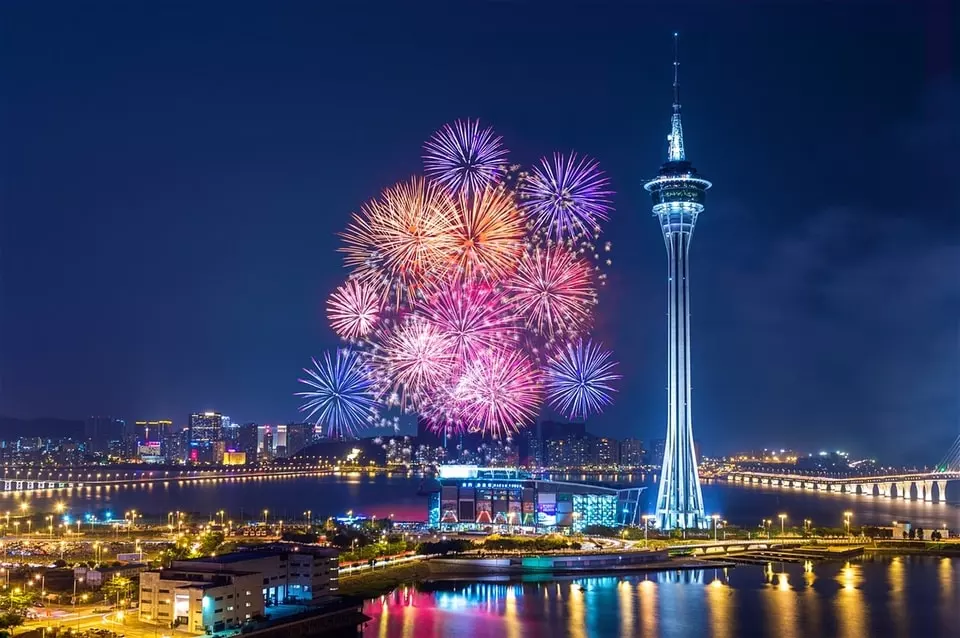 Beijing officials announced that residents of mainland China would be permitted to visit Macau using an online visa system as of November 1st, as the Government is streamlining travel to the largest gambling hub on a global scale following more than two years of Covid-19-related restrictions.
Beijing officials announced that residents of mainland China would be permitted to visit Macau using an online visa system as of November 1st, as the Government is streamlining travel to the largest gambling hub on a global scale following more than two years of Covid-19-related restrictions.
For the time being, Macau has remained the only place in China where casino gambling is legal. However, the strict no-coronavirus policies and controls of the Chinese Government have hit the economy of the former Portuguese colony hard, considering it is still very much reliant on the local gambling sector. For the past two and a half years, visitors from mainland China have been required to submit detailed, in-person applications to visit the special administrative region of Macau, with the approvals granted by the Government usually limited to essential business travel.
As revealed in a statement issued earlier today by officials from China’s Immigration Administration, Beijing is set to launch an electronic visa system on November 1st. This move would pretty much pave the way for travel groups originating from mainland China to return to Macau casinos, where they represented the vast majority of punters.
According to the statement of the country’s immigration authorities, the Government eventually judged the Covid-19 situation in the special administrative region to be stable, although health officials decided to lock down a massive casino complex on October 30th following a number of coronavirus infection cases. The residents of Macau are also required to take daily rapid antigen tests until November 2nd.
For the time being, Macau remains largely shut to overseas visitors and still has a seven-day hotel quarantine policy. According to analysts, it is very likely that the local casinos are unable to return to their busiest days, even if the Covid-19 pandemic measures are lifted in full. As CasinoGamesPro previously reported, the anti-corruption campaign that Chinese President Xi Jinping rolled out has increased scrutiny of the high-rollers and officials who travel from mainland China to Macau to gamble.
MGM China Sees the Unexpected Closure of Its Cotai Casino Due to Positive Covid-19 Testing
 Macau officials announced that the Cotai casino of MGM China was locked down on October 30th after a dealer tested positive for the Covid-19 infection, with city authorities ordering everyone inside the casino to remain there until November 1st.
Macau officials announced that the Cotai casino of MGM China was locked down on October 30th after a dealer tested positive for the Covid-19 infection, with city authorities ordering everyone inside the casino to remain there until November 1st.
The unexpected closure has represented a hard blow to the casino operator that has already been trying to combat the restrictions associated with the coronavirus infection for over two and a half years. The SAR Government issued a statement to confirm that casinos, hotel staff and hotel guests would be quarantined immediately in place and added that the stores and restaurants adjacent to the hotel resort would also remain closed. The fact that no one was allowed to enter or exit the building was confirmed by Government health workers.
Immediately after the casino resort closure, there was no information about the exact number of people who were inside at the time.
As previously reported, Macau casinos have been losing millions of dollars every month as a result of coronavirus restrictions because the special administrative region that also happens to be the largest gambling hub in the world sticks to the dynamic zero-Covid-19 policy of the Chinese Government. The closure has also come at a time when the six casino operators in Macau – MGM China, Galaxy Entertainment, Melco Resorts, Wynn Macau, SJM Holdings, and Sands China – are awaiting the decision of the Government on whether they will receive new operating licenses. According to some experts, the decision could be announced as early as this week.